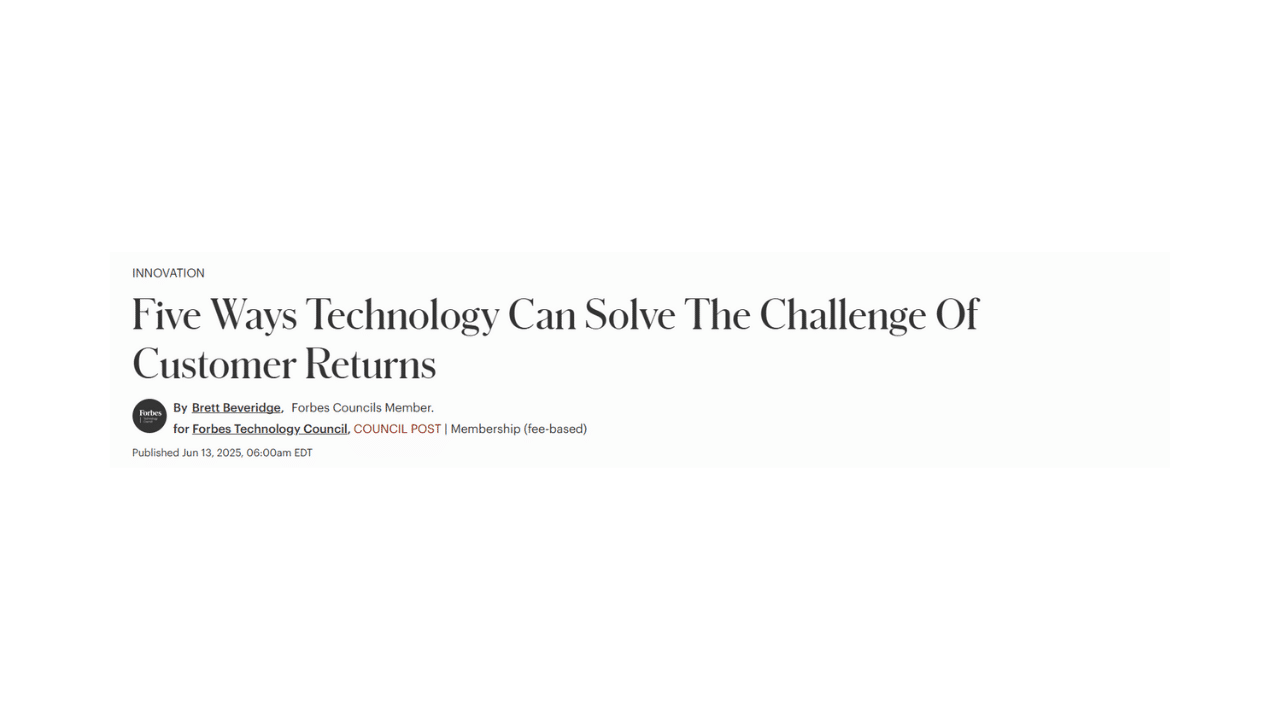
Why Mystery Shoppers Are Here To Stay In The Age Of Tech-Driven Retail
In an era dominated by AI‑powered cameras, smart shelves and predictive analytics, the traditional mystery shopper strategy for retailers might seem like a thing of the past. But as the founder and CEO of a company that offers mystery shopping services, I can tell you that it’s evolving and even thriving. Far from being sidelined by technological change, these secret human shoppers are being used in new, relevant ways.
Here are some of the reasons why I believe mystery shoppers will continue to play an essential role in retail—complementing, rather than being replaced by digital tools:
• Contextual Empathy: Real humans sense subtleties like a rushed sale, a genuine smile or a dismissive tone.
• Adaptive Interaction: Humans can also pivot to naturally ask follow-up questions or steer a conversation to reveal deeper dynamics and important revelations.
• Trust And Authenticity: Brands want to know how real shoppers feel, not just what AI sensors capture. Mystery shoppers mirror actual customers, lending credibility to evaluations.
• Holistic Storytelling: AI can flag a “checkout delay” or “empty shelves,” but only humans can tell the story of why there was a delay, if the shelf was about to be restocked, what it felt like and how it affected their view of the brand.
The Tech Revolution In Retail Quality Control
Retailers have been embracing AI and high‑tech solutions to improve store performance. For example, in the U.K. and U.S., AI‑based surveillance systems like computer vision and smart checkout platforms are being deployed to combat shrinkage and enhance operations. Old Navy, for instance, rolled out “RADAR,” which is an AI and RFID‑driven inventory system across 1,200 stores. It allows staff to locate items in real time, drastically reducing out‑of‑stock occurrences.
We’ve seen that these systems excel at analyzing massive data—they can automatically track stock, flag theft risks and measure foot traffic. But we’ve also noticed that they fall short in capturing interpersonal experiences like the tone of being welcomed upon entering, the empathy of staff or how clear staff are when explaining things. That is where we’ll continue to see mystery shoppers shine.
AI Is A Tool, Not A Replacement
A recent case study by Evalyn highlights an electronics chain, RetailWave, that integrated AI into its mystery shopping program. AI was used to scan incoming reports, analyze sentiment and even flag issues like display inconsistencies through computer vision. The outcome was positive—report processing time shrank 70%, customer satisfaction rose 8% and sales in trouble‑spot areas increased 3% to 5%.
But we note that the study also stressed that AI doesn’t replace humans—it accelerates them. Shoppers still gather the nuanced insights that AI can’t. It’s something we continue to see: Humans excel when it comes to subtle cues in tone, body language or unexpected nuances.
The Hybrid Model Is The Best Of Both Worlds
The convergence of AI and humans is the key to quality control and customer service. Creating a hybrid model of the two working together can result in an excellent mystery shopping strategy and feedback for retail leaders. Here’s how I see it working best:
• AI For Scale And Speed: Using natural language processing, AI can quickly review thousands of reports, pulling sentiment, keywords or compliance failures. Computer vision can scan hundreds of store visits a week for empty shelves or signage errors.
• Mystery Shoppers For Insight And Depth: Shoppers visit stores physically, engage with staff, ask questions and narrate their subjective experiences. They detect emotional authenticity and service spirit, which are invaluable to brand identity.
• Managers Supported By Real‑Time Dashboards: AI flags trends, like rising reports of “rude staff” in a region or missing in-store promotions. Mystery shoppers then provide context-rich feedback to validate issues and guide corrective actions.
Navigating Privacy And Ethics
As we integrate AI into mystery shopping through voice analytics, computer vision and predictive insights, it’s critical that we do so responsibly. Privacy can’t be an afterthought: Retailers must comply with data protection laws, be transparent with both customers and employees and ensure that AI is presented as a tool for support, not covert surveillance.
Mystery Shopping Into Tomorrow
In the age of tech-driven retail, mystery shoppers are far from obsolete—they’re more important than ever. The future is hybrid: AI for scale, humans for soul. Mystery shoppers bring the nuance, adaptability and empathy needed to interpret the signals AI picks up so retailers can achieve a richer, more responsive understanding of customer experience. They are the human heart in a high-tech operation and the reason I believe this age-old practice is here to stay.








